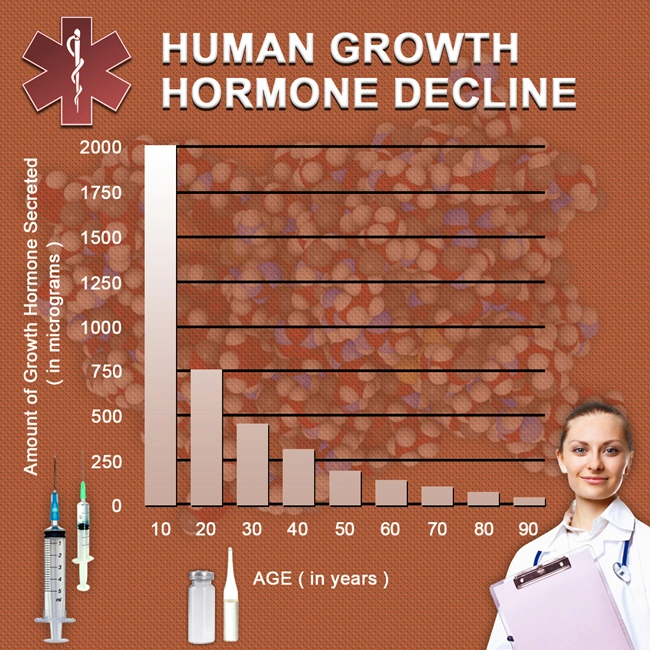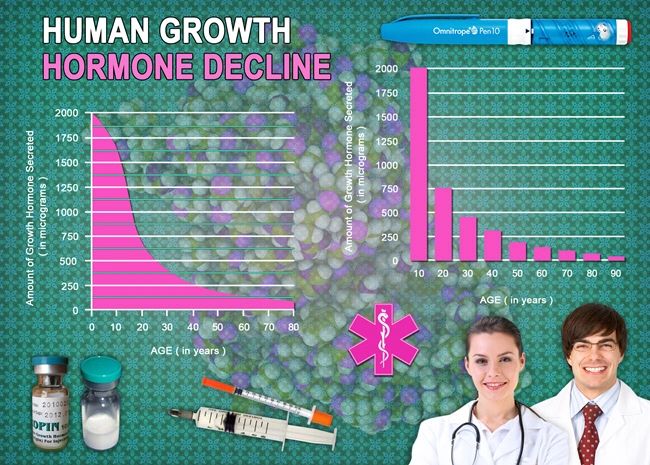
Introduction
Andropause, often referred to as male menopause, is a condition associated with the gradual decline of testosterone levels in aging men. This phenomenon has significant implications for physical fitness, particularly in terms of muscle mass and strength. This article delves into a longitudinal analysis spanning 20 years, examining how andropause influences these aspects in American males. The findings are crucial for understanding the aging process and developing targeted interventions to maintain physical health in later life.
Methodology of the Longitudinal Study
The study involved a cohort of 500 American males aged between 40 and 60 at the outset. Participants were assessed biennially over a 20-year period. Measurements included muscle mass, assessed via dual-energy X-ray absorptiometry (DEXA), and muscle strength, evaluated through grip strength and one-repetition maximum tests for key muscle groups. Blood samples were also taken to monitor testosterone levels, providing a comprehensive dataset on the correlation between hormonal changes and physical fitness.
Findings on Muscle Mass Decline
Over the course of the study, a consistent decline in muscle mass was observed among the participants. On average, there was a 1-2% annual decrease in muscle mass, which correlated strongly with declining testosterone levels. By the end of the 20-year period, participants had experienced a significant reduction in muscle mass, with those exhibiting the lowest testosterone levels showing the most pronounced declines. This finding underscores the pivotal role of andropause in the muscle mass reduction seen in aging American males.
Impact on Muscle Strength
Parallel to the decline in muscle mass, muscle strength also diminished over the study period. Grip strength, a reliable indicator of overall muscle strength, decreased by approximately 3-4% per decade. Similarly, one-repetition maximum tests for major muscle groups like the quadriceps and biceps showed declines of 5-6% per decade. These reductions were more pronounced in participants with lower testosterone levels, highlighting the direct influence of andropause on muscle strength.
Correlation Between Testosterone and Physical Fitness
The data from this study clearly demonstrate a strong correlation between testosterone levels and physical fitness in American males. As testosterone levels declined with age, so too did muscle mass and strength. This relationship suggests that interventions aimed at maintaining or boosting testosterone levels could potentially mitigate the physical effects of andropause. Such interventions could include hormone replacement therapy, lifestyle modifications, and targeted exercise regimens.
Implications for Health and Fitness Interventions
The findings of this longitudinal study have significant implications for the development of health and fitness interventions for aging American males. Given the clear link between andropause and declines in muscle mass and strength, healthcare providers should consider routine testosterone screenings as part of regular health assessments for men over 40. Additionally, tailored exercise programs that focus on resistance training and muscle preservation could be beneficial in counteracting the effects of andropause.
Conclusion
This 20-year longitudinal analysis provides compelling evidence of the impact of andropause on muscle mass and strength in American males. The observed declines in these physical fitness metrics highlight the need for proactive measures to address the effects of aging and hormonal changes. By understanding and addressing the influence of andropause, it is possible to enhance the quality of life and physical health of aging American men.
Contact Us Today For A Free Consultation
Dear Patient,
Once you have completing the above contact form, for security purposes and confirmation, please confirm your information by calling us.
Please call now: 1-800-380-5339.
Welcoming You To Our Clinic, Professor Tom Henderson.

- Understanding Andropause: Symptoms, Diagnosis, and Management in American Men [Last Updated On: February 28th, 2025] [Originally Added On: February 28th, 2025]
- Andropause: Debunking Myths and Understanding Realities for American Men's Health [Last Updated On: March 17th, 2025] [Originally Added On: March 17th, 2025]
- Andropause and Prostate Health: Navigating the Complex Link for American Males [Last Updated On: March 18th, 2025] [Originally Added On: March 18th, 2025]
- Exploring Supplements for Andropause: Efficacy, Safety, and Management Strategies [Last Updated On: March 18th, 2025] [Originally Added On: March 18th, 2025]
- Managing Andropause: Lifestyle Strategies for American Men's Health and Vitality [Last Updated On: March 19th, 2025] [Originally Added On: March 19th, 2025]
- Andropause and Cognitive Health: Strategies for American Men to Maintain Mental Sharpness [Last Updated On: March 19th, 2025] [Originally Added On: March 19th, 2025]
- Andropause Management: Importance of Regular Check-ups for Aging Men's Health [Last Updated On: March 20th, 2025] [Originally Added On: March 20th, 2025]
- Navigating Andropause: Emotional Well-being and Support for Aging American Men [Last Updated On: March 21st, 2025] [Originally Added On: March 21st, 2025]
- Andropause in American Males: Symptoms, Diabetes Risk, and Management Strategies [Last Updated On: March 22nd, 2025] [Originally Added On: March 22nd, 2025]
- Andropause: Navigating Social Impacts and Support for Aging American Men [Last Updated On: March 22nd, 2025] [Originally Added On: March 22nd, 2025]
- Andropause Effects on Skin: Essential Skincare Tips for American Males [Last Updated On: March 22nd, 2025] [Originally Added On: March 22nd, 2025]
- Andropause: Understanding Symptoms and Embracing Growth in American Males [Last Updated On: March 22nd, 2025] [Originally Added On: March 22nd, 2025]
- Navigating Andropause: Emotional Impacts and Management Strategies for American Men [Last Updated On: March 22nd, 2025] [Originally Added On: March 22nd, 2025]
- Andropause: Mental Health Professionals' Role in Managing Male Menopause Symptoms [Last Updated On: March 22nd, 2025] [Originally Added On: March 22nd, 2025]
- Andropause Effects on Joint Health: Management Strategies for American Men [Last Updated On: March 22nd, 2025] [Originally Added On: March 22nd, 2025]
- Andropause in American Men: Benefits and Risks of Hormone Replacement Therapy [Last Updated On: March 23rd, 2025] [Originally Added On: March 23rd, 2025]
- Andropause: Understanding Male Menopause and Managing Its Effects [Last Updated On: March 23rd, 2025] [Originally Added On: March 23rd, 2025]
- Andropause and Depression in American Men: Symptoms, Links, and Treatment Options [Last Updated On: March 23rd, 2025] [Originally Added On: March 23rd, 2025]
- Managing Andropause: Symptoms, Diagnosis, and Treatment Options for Aging Men [Last Updated On: March 23rd, 2025] [Originally Added On: March 23rd, 2025]
- Andropause: Impact on American Men's Self-Esteem and Coping Strategies [Last Updated On: March 23rd, 2025] [Originally Added On: March 23rd, 2025]
- Andropause: Understanding Symptoms, Family Support, and Healthy Lifestyle Changes for American Men [Last Updated On: March 23rd, 2025] [Originally Added On: March 23rd, 2025]
- Andropause and Hair Loss: Understanding Causes and Exploring Treatment Options for American Males [Last Updated On: March 23rd, 2025] [Originally Added On: March 23rd, 2025]
- Andropause: Navigating Male Menopause with Essential Support Networks [Last Updated On: March 24th, 2025] [Originally Added On: March 24th, 2025]
- Andropause: Understanding and Managing Male Menopause in American Men [Last Updated On: March 24th, 2025] [Originally Added On: March 24th, 2025]
- Managing Andropause: Combating Fatigue with Diet, Exercise, and Holistic Strategies [Last Updated On: March 24th, 2025] [Originally Added On: March 24th, 2025]
- Andropause and Immune Health: Strategies for American Men to Maintain Well-being [Last Updated On: March 25th, 2025] [Originally Added On: March 25th, 2025]
- Andropause and Digestive Health: Strategies for American Males [Last Updated On: March 25th, 2025] [Originally Added On: March 25th, 2025]
- Andropause and Memory: Strategies for American Males to Enhance Cognitive Function [Last Updated On: March 25th, 2025] [Originally Added On: March 25th, 2025]
- Andropause: Managing Muscle Loss in American Males Through Exercise and Nutrition [Last Updated On: March 25th, 2025] [Originally Added On: March 25th, 2025]
- Andropause and Cholesterol Management in American Males: Diet, Exercise, and Medical Options [Last Updated On: March 25th, 2025] [Originally Added On: March 25th, 2025]
- Andropause: Managing Symptoms and Work Performance in American Men [Last Updated On: March 25th, 2025] [Originally Added On: March 25th, 2025]
- Andropause and Vision: Managing Eye Health in Aging American Males [Last Updated On: March 26th, 2025] [Originally Added On: March 26th, 2025]
- Navigating Andropause: Essential Nutrition for American Males [Last Updated On: March 26th, 2025] [Originally Added On: March 26th, 2025]
- Hydration's Crucial Role in Managing Andropause Symptoms in American Men [Last Updated On: March 26th, 2025] [Originally Added On: March 26th, 2025]
- Andropause and Kidney Health: Understanding the Link and Managing Risks [Last Updated On: March 26th, 2025] [Originally Added On: March 26th, 2025]
- Andropause and Energy: Understanding and Managing Decline in American Men [Last Updated On: March 26th, 2025] [Originally Added On: March 26th, 2025]
- Andropause and Thyroid Function: Impacts and Management in American Men [Last Updated On: March 26th, 2025] [Originally Added On: March 26th, 2025]
- Andropause and Dental Health: Tips for American Males to Maintain Oral Hygiene [Last Updated On: March 26th, 2025] [Originally Added On: March 26th, 2025]
- Andropause Impact on Liver Health: Strategies for American Males [Last Updated On: March 26th, 2025] [Originally Added On: March 26th, 2025]
- Mindfulness: A Key Strategy for Managing Andropause Symptoms in American Men [Last Updated On: March 26th, 2025] [Originally Added On: March 26th, 2025]
- Andropause and Blood Pressure: Monitoring and Management Strategies for American Men [Last Updated On: March 27th, 2025] [Originally Added On: March 27th, 2025]
- Community Support Enhances American Men's Andropause Management and Well-being [Last Updated On: March 27th, 2025] [Originally Added On: March 27th, 2025]
- Andropause in American Males: Symptoms, Stress Management, and Quality of Life [Last Updated On: March 27th, 2025] [Originally Added On: March 27th, 2025]
- Andropause Management: The Vital Role of Sleep for American Men's Health [Last Updated On: March 28th, 2025] [Originally Added On: March 28th, 2025]
- Andropause: Understanding Declining Testosterone's Impact on American Men's Motivation and Drive [Last Updated On: March 28th, 2025] [Originally Added On: March 28th, 2025]
- Andropause and Respiratory Health: Symptoms, Impacts, and Management Strategies for American Males [Last Updated On: March 28th, 2025] [Originally Added On: March 28th, 2025]
- Andropause: Managing Mental Health with Essential Mental Health Days for American Men [Last Updated On: March 28th, 2025] [Originally Added On: March 28th, 2025]
- Andropause Management: Exercise Benefits for American Men's Health and Vitality [Last Updated On: March 28th, 2025] [Originally Added On: March 28th, 2025]
- Andropause: Understanding Male Menopause and Its Impact on American Men's Confidence [Last Updated On: March 29th, 2025] [Originally Added On: March 29th, 2025]
- Andropause: Understanding Male Menopause and Essential Health Screenings for Aging Men [Last Updated On: March 29th, 2025] [Originally Added On: March 29th, 2025]
- Andropause and Emotional Intelligence: Enhancing Men's Well-being [Last Updated On: March 30th, 2025] [Originally Added On: March 30th, 2025]
- Andropause and Hearing Loss: Understanding the Link in American Males [Last Updated On: March 31st, 2025] [Originally Added On: March 31st, 2025]
- Andropause Management: The Therapeutic Role of Hobbies for American Men [Last Updated On: April 1st, 2025] [Originally Added On: April 1st, 2025]
- Andropause and Creativity: Managing Decline in American Men's Cognitive Output [Last Updated On: April 2nd, 2025] [Originally Added On: April 2nd, 2025]
- Andropause and Allergies: Managing Symptoms for American Men's Health [Last Updated On: April 3rd, 2025] [Originally Added On: April 3rd, 2025]
- Managing Andropause: Goal Setting for American Men's Health and Well-being [Last Updated On: April 5th, 2025] [Originally Added On: April 5th, 2025]
- Andropause and Skin Sensitivity: Management Strategies for American Men [Last Updated On: April 5th, 2025] [Originally Added On: April 5th, 2025]
- Andropause: Understanding Its Impact on American Men's Purpose and Well-being [Last Updated On: April 6th, 2025] [Originally Added On: April 6th, 2025]
- Andropause and Foot Health: Strategies for American Men to Maintain Mobility and Well-being [Last Updated On: April 7th, 2025] [Originally Added On: April 7th, 2025]
- Andropause: Managing Symptoms with Time Management and Lifestyle Strategies [Last Updated On: April 7th, 2025] [Originally Added On: April 7th, 2025]
- Technology Revolutionizes Andropause Management for American Men [Last Updated On: April 10th, 2025] [Originally Added On: April 10th, 2025]
- Andropause: Navigating Declining Testosterone and Maintaining an Adventurous Life [Last Updated On: April 11th, 2025] [Originally Added On: April 11th, 2025]
- Andropause Impact on Nail Health: Strategies for American Males [Last Updated On: April 11th, 2025] [Originally Added On: April 11th, 2025]
- Volunteering: A Holistic Approach to Managing Andropause Symptoms in Men [Last Updated On: April 11th, 2025] [Originally Added On: April 11th, 2025]
- Andropause Impact on Eye Health: Risks and Management Strategies for American Males [Last Updated On: April 12th, 2025] [Originally Added On: April 12th, 2025]
- Andropause: Managing Its Impact on Hand Health in American Men [Last Updated On: April 12th, 2025] [Originally Added On: April 12th, 2025]
- Andropause and Lifelong Learning: Empowering American Men's Health Journey [Last Updated On: April 13th, 2025] [Originally Added On: April 13th, 2025]
- Travel as Therapy: Managing Andropause in American Men [Last Updated On: April 14th, 2025] [Originally Added On: April 14th, 2025]
- Andropause and Ear Health: Protecting Hearing in Aging American Males [Last Updated On: April 15th, 2025] [Originally Added On: April 15th, 2025]
- Andropause Effects on Oral Health: Managing Tongue and Saliva Changes in Aging Men [Last Updated On: April 16th, 2025] [Originally Added On: April 16th, 2025]
- Andropause in American Males: Understanding Its Impact on Nose Health [Last Updated On: April 17th, 2025] [Originally Added On: April 17th, 2025]
- Music Therapy: A Holistic Approach to Managing Andropause in American Men [Last Updated On: April 18th, 2025] [Originally Added On: April 18th, 2025]
- Andropause Management: Harnessing Art for Psychological and Cognitive Health in American Men [Last Updated On: April 18th, 2025] [Originally Added On: April 18th, 2025]
- Andropause Impact on Throat Health: Symptoms and Management Strategies for American Men [Last Updated On: April 18th, 2025] [Originally Added On: April 18th, 2025]
- Andropause: Financial Planning Strategies for American Men's Health and Retirement [Last Updated On: April 18th, 2025] [Originally Added On: April 18th, 2025]
- Andropause: Impact on American Men's Humor and Cultural Identity [Last Updated On: April 19th, 2025] [Originally Added On: April 19th, 2025]
- Andropause: Navigating Identity and Masculinity in Aging American Men [Last Updated On: April 20th, 2025] [Originally Added On: April 20th, 2025]
- Andropause in American Men: Enhancing Life with Social Connections [Last Updated On: April 20th, 2025] [Originally Added On: April 20th, 2025]
- Understanding Andropause: Symptoms, Diagnosis, and Management Strategies for Men [Last Updated On: April 21st, 2025] [Originally Added On: April 21st, 2025]
- Andropause: Understanding Male Menopause and Its Impact on Belonging in American Men [Last Updated On: April 21st, 2025] [Originally Added On: April 21st, 2025]








